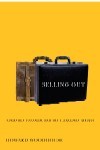
Selling Out
Howard Woodhouse
McGill-Queen`s University Press
$39.95
cloth
350pp
978-0-7735-3580-0
In Gulliver’s Travels, Jonathan Swift ridiculed how removed their pursuits were from daily life. He depicted them as so caught up in the abstract that they couldn’t walk or talk without having a “flapper” remind them of the task at hand with a smack on the face. He also mocked their areas of interest by inventing some of his own, such as “extracting sunbeams out of cucumbers” and reconstructing food from excrement.
Yet now, almost three hundred years later, academia is under fire for doing exactly the opposite. Instead of delving into the arcane, many universities are pandering to the needs of big business in order to turn a profit.
The question is: which is worse? Alienating the taxpaying – and university- supporting – public with inaccessible research or prioritizing applied research because it pays the rent?
From the title of his new book Selling Out, it is clear where Howard Woodhouse stands. Before presenting his arguments against corporate meddling in higher education, he demonstrates how tight the relationship between companies and academia actually is. He is rightly disgusted when he hears Dr. Tom Brzustowski, Ontario’s deputy minister of colleges and universities, say that “the one global object of education in Ontario must necessarily be a greater capability of the people of Ontario to create wealth.”
Woodhouse, co-director of the University of Saskatchewan Process Philosophy Research Unit, is concerned about the way many universities are currently adopting the market model by partnering with companies which, in exchange for financial support, dictate instructional approach and the direction of research programs. This arrangement means that the company gets the patent for whatever idea emerges from professors’ research.
As Woodhouse points out, there is an inherent contradiction between the goals of companies and those of universities. While universities seek “knowledge [which] is itself a public good whose value is realized through its being shared,” companies can only generate wealth by owning the ideas. He goes on to defend the idea of an education system free of corporate puppeteers, exposing the problems posed by the market model through theoretical analyses as well as concrete examples taken from Canadian universities. While the conventional idea today is that the market model is the way of the future, Woodhouse proposes an alternative educational model that focuses on pursuing truth rather than money.
He makes his case convincingly. Sometimes, though, he is so committed to restating his thesis that Selling Out reads like a well-researched term paper. Even when recounting the dirty dealings of deans and business people-the stuff of spy novels-he fails to create a narrative arc that makes one want to keep reading. On occasion, Woodhouse might have been forced to sacrifice compelling prose for the sake of a watertight argument, but that he does so throughout the book is frustrating for the reader. It’s a pity, as Woodhouse cares deeply about his subject, and has covered it thoroughly.
But readers should not let Woodhouse’s overly academic approach turn them off his ideas. His point of view is important for anyone who values the acquisition of knowledge. By letting corporate interests oversee the education system, society stands to lose the possibility of properly engaging with ideas that are too abstract to interest the corporate world, as well as the honesty and freedom that should characterize higher education in the 21st century. As novelist J. M. Coetzee puts it: “If we can’t trust the university, who can we trust?” mRb






0 Comments